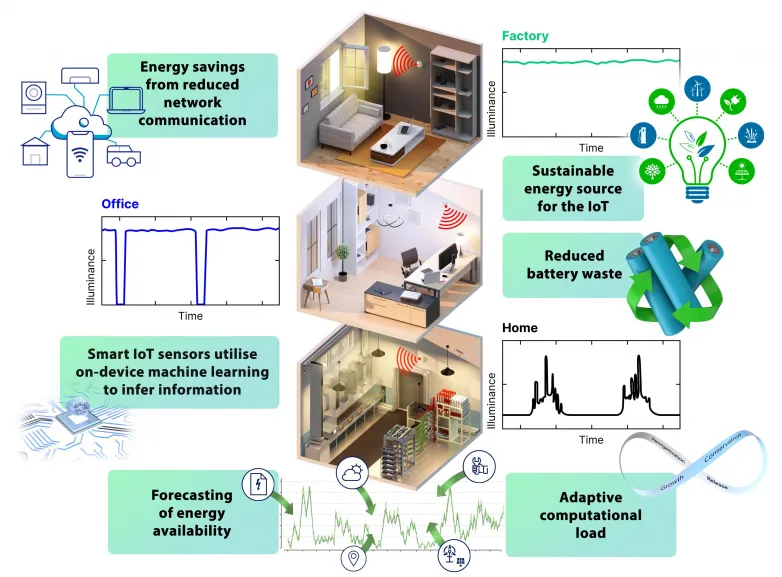Researchers create high-efficiency sustainable solar cells for IoT devices with AI-powered energy management
- Newcastle University researchers have actually created environmentally-friendly, high-efficiency photovoltaic cells that harness ambient light to power internet of Things (IoT) devices.

Led by Dr. Marina Freitag, the research group from the from School of Natural and also Environmental Sciences (SNES) produced dye-sensitized photovoltaic cells based upon a copper( II/I) electrolyte, achieving an unprecedented power conversion efficiency of 38% as well as 1.0 V open-circuit voltage at 1,000 lux (fluorescent light). The cells are non-toxic as well as environmentally friendly, establishing a new standard for sustainable energy resources in ambient settings.
Released in the journal Chemical Science, the study has the possible to reinvent the way IoT devices are powered, making them extra sustainable and also efficient, and opening up new possibilities in industries such as health care, production, and also smart city growth.
Dr. Freitag, Principal Investigator at SNES, Newcastle University, said, "Our research marks a crucial action towards making IoT devices a lot more sustainable and also energy-efficient. By combining cutting-edge photovoltaic cells with smart energy management techniques, we are paving the way for a multitude of new device applications that will certainly have far-ranging applications in various sectors."
The team additionally presented a pioneering energy management technique, employing long temporary memory (LSTM) synthetic neural networks to predict transforming deployment environments as well as adapt the computational lots of IoT sensing units as necessary. This dynamic energy management system makes it possible for the energy-harvesting circuit to run at optimal effectiveness, reducing power losses or brownouts.
This innovation research demonstrates just how the synergy of expert system and also ambient light as a source of power can enable the next generation of IoT devices. The energy-efficient IoT sensing units, powered by high-efficiency ambient photovoltaic cells, can dynamically adjust their energy use based upon LSTM predictions, causing considerable energy financial savings and also reduced network interaction needs.
Also read

